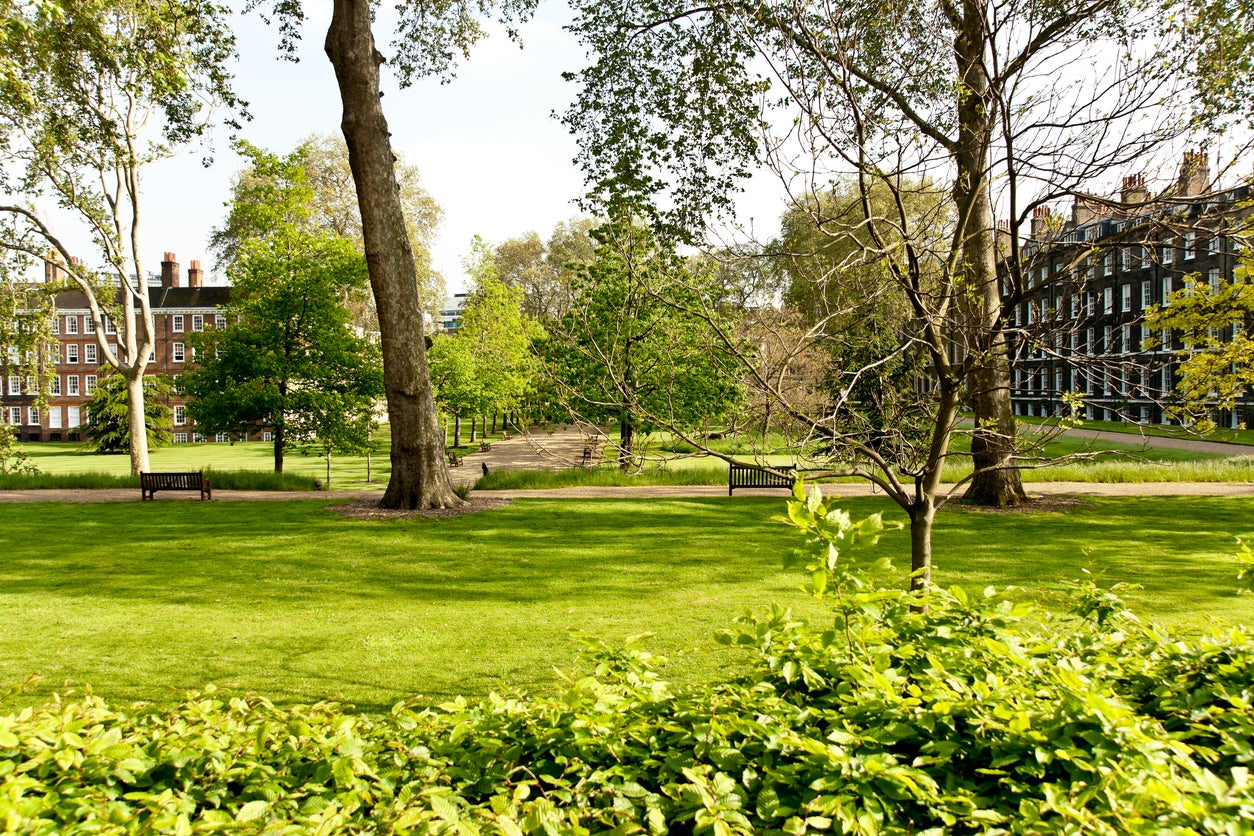City green spaces ‘should receive same protection as national parks’
Government must encourage councils to use unique clause in planning laws to stop development on green spaces, charity says

Your support helps us to tell the story
From reproductive rights to climate change to Big Tech, The Independent is on the ground when the story is developing. Whether it's investigating the financials of Elon Musk's pro-Trump PAC or producing our latest documentary, 'The A Word', which shines a light on the American women fighting for reproductive rights, we know how important it is to parse out the facts from the messaging.
At such a critical moment in US history, we need reporters on the ground. Your donation allows us to keep sending journalists to speak to both sides of the story.
The Independent is trusted by Americans across the entire political spectrum. And unlike many other quality news outlets, we choose not to lock Americans out of our reporting and analysis with paywalls. We believe quality journalism should be available to everyone, paid for by those who can afford it.
Your support makes all the difference.Councils should use planning laws to ensure that parks and green spaces in cities are given the same protection as national parks, a charity has said.
CPRE, the countryside charity, is calling on local authorities to use "unique" clause in planning laws to protect urban green spaces from development.
It says the Local Green Space designation, a little know clause contained within the National Planning Policy Framework, is specifically aimed ar protectimg the pockets of nature most valued by local people.
Local Green Spaces are small parcels of land, close to where people live, that are demonstrably special to their community, for reasons that can include their beauty, historical significance, recreational value, tranquillity or richness of wildlife.
According to CPRE, southern England has benefitted from the designation far more than the north.
In the most nature-deprived neighbourhoods, where it could have huge value for poorer communities, it is a tool that is barely ever used, CPRE said.
New research by the charity says over 6,500 Local Green Spaces have been created since 2012, often to protect valued land on the edge of villages.
But the research shows that inner cities and densely populated urban areas, which are more likely to be populated by poorer and non-white communities, are the least likely to have benefited.
Wealthier parts of the south and Midlands had the majority of Local Green Space designations, while the poorest regions in the north had the least.
CPRE is calling on the government to encourage all local authorities to promote the use of the Local Green Space designation as widely as possible.
Crispin Truman, chief executive of CPRE, said: "This is a solution to levelling up that has been hiding in plain sight; a planning superpower in the hands of ordinary people.
"All that people have to prove is they use and value the land for it to be eligible to be protected like it’s a national park. Unfortunately, there is a sliding scale of injustice when it comes to who is benefitting. Put simply, the poorer you are and the more nature-deprived your neighbourhood already is, the less likely you are to have any protected Local Green Space. It’s time to address this imbalance and level up everyone’s access to nature."
He added: "That is why we’re calling on the government to promise the equivalent of a national park for every neighbourhood. Local Green Space designation is a powerful way to protect vulnerable slices of nature, particularly in deprived areas. It has the added benefit of nurturing neighbourhood planning groups so that local residents get more of a say in what gets built locally.
"Our iconic national parks are rightly celebrated and protected.
“But research repeatedly shows they are not accessible to all – and that the poorest in society benefit the least. That’s why it should be a national priority to protect our local parks and green spaces so that everybody, no matter where they live, has access to the benefits of nature."
Join our commenting forum
Join thought-provoking conversations, follow other Independent readers and see their replies
Comments